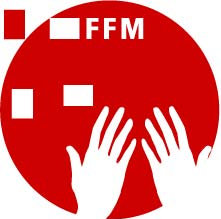Program Overview
Thanks to the longstanding support of the Leopold Bachmann Foundation, we have successfully established a functional self-learning center called «Nook» in Ward 3, Mwenezi. A Ward is a political unit similar to a municipal office in a canton. In our case, a canton is roughly equivalent to a district, specifically «Rutenga,» while the province of Masvingo, where Ward 3 is located, is approximately the size of Switzerland.
In the fourth and current learning cycle, over 90 individuals have registered to collectively explore what they want to learn to improve their economic, ecological, and social situations, thus contributing to the overall development of the community. Just at the beginning of this year Ward 2 and Ward 3 were put together, resuliting in a vast area spanning approximately 40 kilometers in radius. For those from the outskirts of Ward 2 and 3 and neighboring wards, the daily commute is too far, making the Nook inaccessible to them.
Some young men have temporarily rented rooms in nearby village houses to be part of the Nook, but the financial commitment is often too high, causing them to discontinue the cycle prematurely. For women, sleeping outside their homestead is culturally challenging.
Goals and Purposes
With the Nook Hostel, we aim to provide accommodation for people who want to participate in the Nook program from a distance. The hostel will have separate dormitories for men and women. The primary goal is to make the Nook more open and inclusive with the Nook Hostel.
Another objective is to operate the Nook Hostel as a small business run by Nook Fellows. Fellows are individuals who have completed a cycle and successfully implemented their own projects. They understand the Nook logic and serve as multipliers of values and principles. Anyone has the opportunity to become a Nook Fellow through personal commitment. Fellows will learn what it means to run a hostel and the long-term activities involved. Accommodation prices should be very low, possibly even workable, to align with the primary goal.
The project involves a construction phase and an operational phase. Our request pertains to the initial construction costs, with the operation intended to cover its expenses. For construction, we will follow traditional architecture and use local materials. Local experts will collaborate with learners to build the hostel. We will also receive support from organizations such as Scope Zimbabwe and Kufunda Village, which already have constructed their buildings ecologically using local knowledge and materials.

Kufunda Classroom Traditional Roofing

Kufunda Classroom

Kufunda Village Garden and House

The hostel will be integrated into our permaculture activities around the Nook, created as a prototype by the learners. Water retention with ponds and channels will help transform the hostel into a green garden. Outdoor areas like a fire pit, playground, and meeting spot under trees will gradually develop organically based on the initiatives of the Nook operators.
For the initial construction, we rely on borehole water and solar power—technologies already familiar to Nook Fellows and learners, who can mostly implement them themselves.
Region
Friends for Matibi Trust, FFM Office, Mwenezi Business Center 1
Ward 3 Mwenezi, District Rutenga, Masvingo, Zimbabwe
Duration
Phase 1: Community Mobilization – Q1 2024
Identify expertise within the community. Determine who is willing to participate in construction. Identify external expertise needed.
Phase 2: Planning – Q2 2024
Create simple architectural plans. Options include A-frame houses with high thatched roofs, two stories, or traditional round houses. Integrate the Nook Hostel into the permaculture and water management concept of the Nook with gardens, trees, shrubs, water reservoirs, and channels, gray and black water treatment.
Phase 3: Construction – Q3 and Q4 2024
Local construction workers using organic materials, supplemented by external experts for knowledge exchange and construction guidance. Permaculture-integrated sanitation facilities, solar installation on the roof, borehole, solar-powered pump, and water tank.
Phase 4: Opening and operation – 2025 and beyond
The running cost should be covered by a minimum fee of the learners and with external visitors. They will be very minimal consisting of two small salaries of Nook fellows and maintenance and repairs on the existing infrastructure. Additionally, the hostel needs to pay into a fund for the long-term maintenance of the buildings and for future expansion if needed and if the operating concept is successful.
Target Audience
People from Ward 3 and neighboring wards who want to participate in the Nook program but cannot commute daily due to the distance. Nook Fellows working on projects within the Nook and advocating for its impact. External visitors interested in understanding the Nook and its community impact.
Vision of Impact
The Nook Hostel will become the center for individuals committed to economic, social, and ecological transformation in the Nook and its surroundings. It will serve as a role model for sustainable building and business. With the Nook Hostel, we can extend the benefits of the Nook to the outskirts and beyond the borders of Ward 3.
Financial Plan
Phase 1: Mobilization
USD 2000.- for travel allowances, leaflet production, mobilization activities
Phase 2: Preconstruction
USD 5000.- for consulting, travels, visits of other permaculture eco-villages with the local team that will build the Nook.
Phase 3: Construction
- USD 20’000.- for two dormitory – one for women, one for men, each with a capacity of 20 beds
- USD 10’000.- for two traditional houses for office and external visitors room
- USD 12’000.- for a 5kva and a 10kva solar-power plants
- USD 3’500.- for a borehole under wethole policy
- USD 7’000.- for solar pump, water tank and pipes
- USD 4’000.- for blair toilets
- USD 8’000.- for two sanitary houses for women and men
- USD 20’000.- for a water management and biogas system
- USD 3’000.- for permaculture integration like ponds, digs, trees, plants, fireplace kitchen and furniture like beds, tables, chairs, hammocks, lounges
Sub-Total phase 3: USD 87’500.-
Grant Total all phases: USD 94’500.-
Requested from other foundations: 70% = USD 66’150.-

